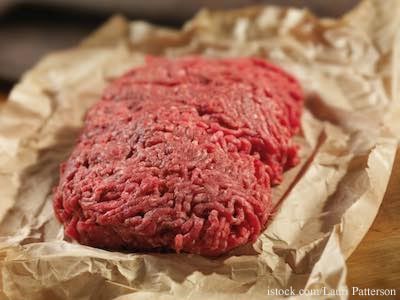A study published in the Journal of Food Protection has found shiga toxin-producing E. coli (STEC) bacteria in ground beef sold in the U.S. at the retail level. Cattle are reservoirs for E. coli O26, O45, O103, O111, O121, O145, and O157. Those bacteria can cause serious illness and death in humans.
 STEC bacteria were declared adulterants in ground beef by the USDA last year. This study estimates the prevalence of non-O157 STEC and E. coli O157 in naturally infected beef cows at post-weaning, finishing, and at slaughter. The study also tested STEC presence in finished ground beef.
STEC bacteria were declared adulterants in ground beef by the USDA last year. This study estimates the prevalence of non-O157 STEC and E. coli O157 in naturally infected beef cows at post-weaning, finishing, and at slaughter. The study also tested STEC presence in finished ground beef.
They found non-O157 STEC in 8 to 39% of cows and 2 to 38% of steer calves. These findings are evidence that beef cows and steer calves shed non-O17 STEC bacteria at post-weaning and before they go into the feedlot. The scientists also found that 0.8% of the 1,129 ground beef samples taken from retail stores in 24 states from October 2011 to May 2012 were potentially positive for at least one STEC serogroup. The tests detected four O26 samples, four O103 samples, three O145 samples, two O45 samples, and one O121 sample. No STEC isolates belonging to these serogroups were recovered from the sample cultures.
If you are planning to cook ground beef this holiday weekend, please cook to well done and check the final internal temperature with a meat thermometer. Eating rare, medium-rare, or medium hamburgers increases your risk for contracting a serious foodborne illness. Last month there was an outbreak of E. coli O157:H7 food poisoning associated with undercooked hamburgers served at restaurants.




